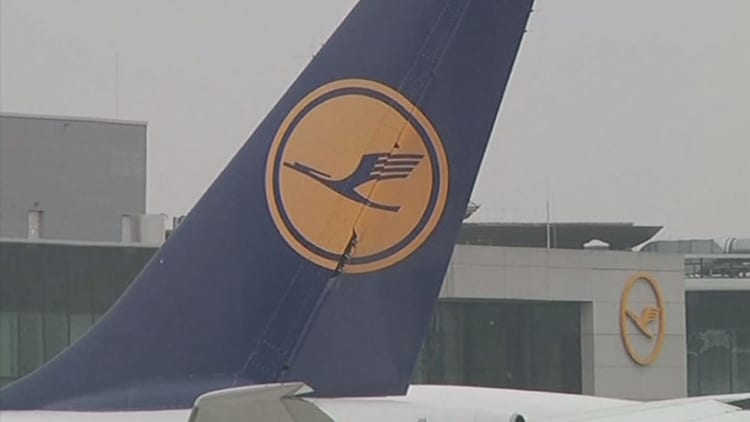
Lufthansa has cancelled hundreds of flights scheduled for Wednesday as its pilots plan a 24-hour walkout, the latest threat of disruption to its operations in a long-running pay dispute.
The strike is the 14th to hit the airline in its row with the Vereinigung Cockpit (VC) union and the airline said it has cancelled 876 of roughly 3,000 flights scheduled for Wednesday, affecting about 100,000 passengers.
Lufthansa was still seeking to prevent the strike going ahead late on Tuesday after a Frankfurt labour court earlier rejected its application for an injunction.
The airline said it would appeal against that decision in proceedings that could last well into the night.
Otherwise the planned strike will run from midnight and affect short-haul and long-haul flights departing from German airports.
Flights by Lufthansa's other airlines including Germanwings, Eurowings, Austrian Airlines, SWISS and Brussels Airlines, are not affected by the pilots' strike, Lufthansa said.
Austrian and SWISS are checking whether they can use larger aircraft to increase the number of passengers they can take. For example, the group plans to use a widebody Boeing 777 on the Vienna-Frankfurt route, it said.
However, budget airline Eurowings cancelled around 60 flights on Tuesday due to a strike by some cabin crew in a separate pay dispute between management and the Verdi labour union.
That walkout started at Duessseldorf and Hamburg airports at 5 am local time (0400 GMT) and is due to last until 8 pm.
Pay talks between Lufthansa and VC broke down this month, and the pilots have rejected calls by Lufthansa for the dispute to be taken to a mediator.
The union is calling for an average increase of 3.7 percent in pay for 5,400 pilots in Germany over a five-year period dating back to 2012.
However, Lufthansa, which is trying to cut costs to cope with increased competition from low-cost carriers and leaner Gulf rivals, has offered a 2.5 percent increase over the six years until 2019.

